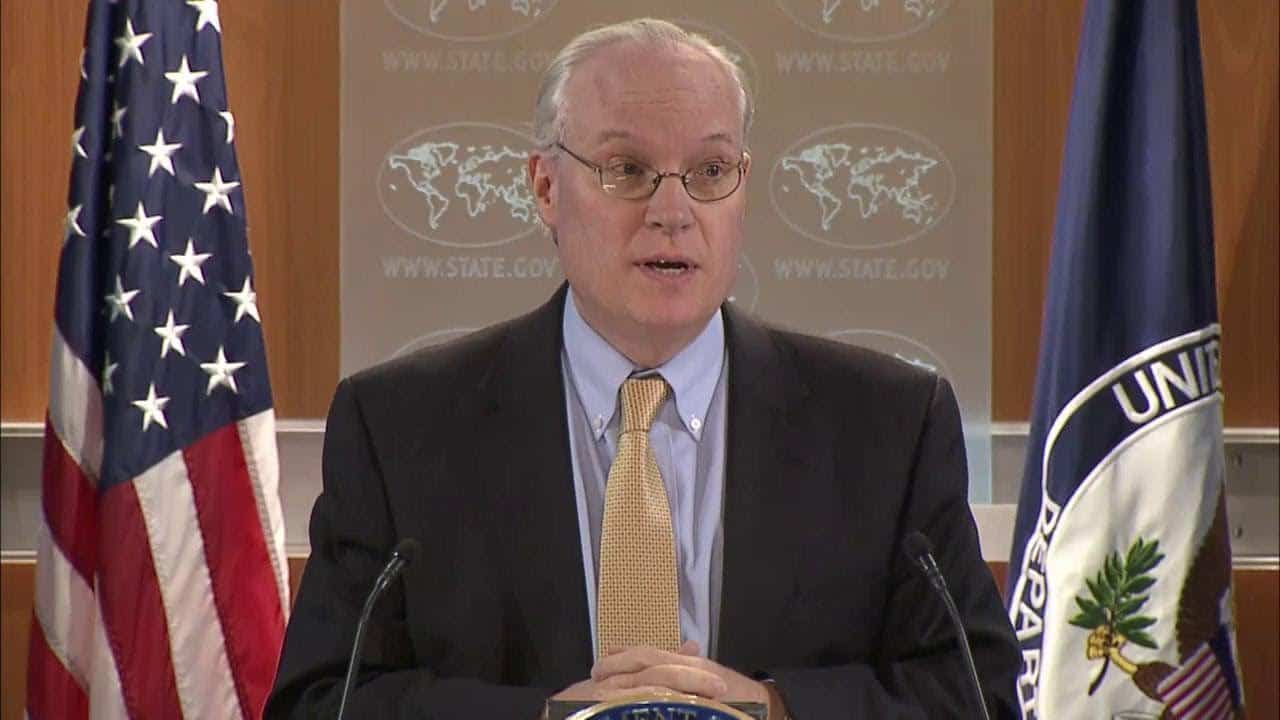
Last updated on: 08-12-2025 at 1 AM Aden Time
Ayad Qassem (south24)
The recent shift of the American diplomatic tone toward the Iran-backed Houthis in Yemen is just a natural extension to President Biden’s policy starting from the revocation of the terrorist designation of the group that overthrew the Hady government and control Sanaa about 7 years ago.
On Thursday, the American Envoy to Yemen, Mr. Tim Lenderking bluntly announced that Washington recognizes the religious Yemeni group as “legitimate actor” inside Yemen and as a group that has made “significant gains”.
This announcement “dots the i's and crosses the t's”(puts things within their proper context) as it has determined, more than ever, the nature of the approach through which Washington wants to end the Yemeni destructive crisis while giving Tehran another offering for the success of Vienna talks about Iran’s nuclear program.
On Friday, The Department of State attempted to contain the furious initial responses towards the American attitude by confirming its recognition of the internationally- recognized Yemeni government. However, it emphasized that the Houthis control “land and people” and that “No one can wish them away or out of the conflict”. [1]
Timing and indicators
The American Special Envoy to Yemen, Mr. Tim Lenderking has become the influential player in the diplomatic Yemeni scene after Mr. Martin Griffiths left his position as a UN Envoy to Yemen. It was appropriate to take such a position in light of the U.N's apparent inability to reach a consensus that ends the conflict, especially after the failure of three UN envoys to Yemen which has “world’s worst humanitarian crisis”.
Mr. Lenderking’s statements focused on three main issues; the Houthi realities in North and ceasefire efforts, the Riyadh Agreement in South and the possibility of the return of the government, as well as the humanitarian worsening crisis.
He indicated that “the engagement in the Riyadh Agreement will create more opportunities for the Yemen government to return to Aden”. Currently, the Parity Government is still existent in Riyadh. However, there are talks about reaching a consensus for its return according to STC’s officials.
The engagement in the Riyadh Agreement is not the main determinator of the government’s return as many other obstacles use such return as a bargaining chip.
However, even the Parity Government would lose its northern political representative legitimacy due to the existence of what the Americans dubbed as a “legitimate actor” who controls the ground in North.
Recognizing the Houthis legitimacy would kill any hope of the return of the government to Sanaa or even Marib which has become its latest center in the crossfire of the Iran-backed group. Consequently, this would put an end to the legitimacy of President Abdrabbuh Mansur Hadi’s regime in North, as well as emptying the UN. Resolution 2216 of its rationale and content.
This view is backed by what the Houthi leader, Mohamed Ali Al Houthi, said, in response to Lenderking statements, that “Today, Yemen won by its steadfastness and its power of self-defense to achieve its legitimacy and independence” [2]
The consequences of recognizing the Houthis Legitimacy won't be confined to Iran's nuclear negotiations or normalizing the Tehran-Washington relationship but they would be felt on the practical ground soon.
Whether this American attitude toward the group has been preceded by some form of coordination with the Houthis or Iranians, it is likely to have one of two conditions; the first condition is that the Houthis refrain from bringing down Marib for several reasons, the most prominent of which is keeping a parallel legitimacy of President Hadi in his last strongholds in North and avoiding opening a new gateway of threats in South where there are global oil interests.
The second condition may be in the shape of a price paid by the Houthis’ opponents to make progress in Vienna’s negotiations and reach an agreement over Iran’s nuclear file.
Both conditions would keep the Iranian influence in Yemen but in light of an American approach that keeps the balance with the oil-rich Gulf countries which would be subjected, if necessary, to long-range strategic threats. Washington's decision to withdraw the Patriot defense system from Saudi Arabia and countries in the region a few days ago, reinforced this reading.
A thin thread
As for South, the consequences won’t be much different from the current scene. The southerners are aware that Hadi regime and its remaining military forces can’t shift the power balance. The achievements of the Saudi-led coalition during the past years have just been made by the southern forces and the local fighters.
In contrast, Hadi regime, controlled by the Islamic party ”Al Islah” and the Vice President, affiliated with the Muslim Brotherhood, has engaged for three consecutive years, in a direct war against the southerners, and the S.T.C in particular.
Moreover, three consecutive governments in Aden have failed to find solutions to the deteriorating economic and living services. The value of one American dollar today has exceeded 930 Yemeni local Riyal, and the government has failed to pay salaries to employees in addition to the chronic shortage of water and electricity supplies.
Therefore, there is a thin fragile thread combining the STC and the Hadi regime. The STC, seeking South independence, has failed in its attempts to increase this thread's political and military capabilities. However, the STC negotiation delegation in Riyadh is still betting on at least forming a joint negotiation delegation that can make a shift in dealing with the Houthis.
The realities, formed in North and South, determine the nature of the outcome of the solution in Yemen. This concept will be subject to more practical experience. Consequently, this means that the controlling parties would participate in any solution that determines the fate, identity, and future shape of Yemen.
Chairman of South24 Center for News Studies
- Image: official